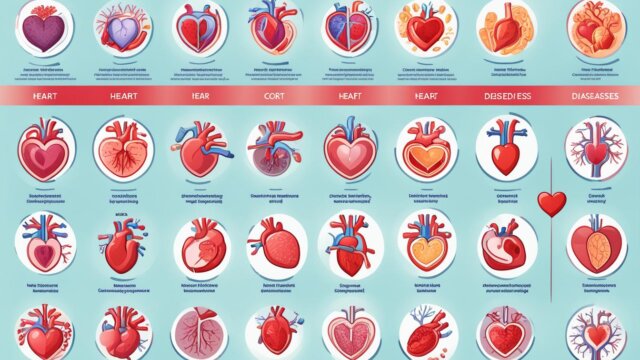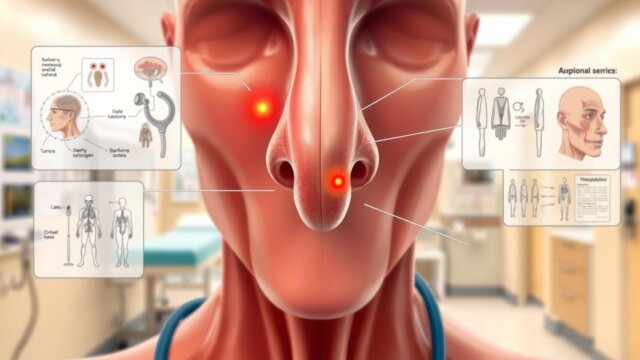FTC disclaimer: This post may contains affiliate links and we will be compensated if you click on a link and make a purchase.
Are you suffering from depression and perpetually feeling down or moody?
Depression is a recurrent and life-threatening psychological complication of the brain, affecting millions of people every year.
According to an estimate, more than 20 million Americans are suffering from depression symptoms at some point in their life.
Every year nearly 10% of all American adults suffer from depression, and 15% of those cases finally end up as suicide.
Depression is an often-underestimated disease, but since more and more cases have occurred, society and medicine are now taken more seriously.
Thus making it one of the most prevalent psychological conditions commonly observed during illnesses, stress, malnutrition, and drug abuse.
There has been an alarming increase in the incidence rate of this disease over the last couple of decades owing to changing lifestyles, nutrition deficiencies, and stressful work environments.
It’s no secret that there’s a link between Omega 3 fatty acids and depression. But, it is good to know precisely how Omega-3 fatty acids and depression are related to each other.
Understanding Types of Depression
Depression is a troubled state of mind, which is difficult to understand unless one has experienced it.
In simple terms, depression can be explained as a debilitating psychological condition in which the victim suffers from low moods associated with a feeling of despair and helplessness.
The individual suffering from depression is no longer interested in doing day-to-day tasks. On the whole, there exists no coordination between the mind and the body in a depressed patient.
Other clinical symptoms of depression include headache, blurred vision, backache, and stomach-related problems.
Situational Depression
Situational Depression is a temporary feeling of sadness or moodiness because of disappointment, frustration, loss, or sickness.
Moreover, this does not last for a long time because it occurs due to normal reactions to situations in our lives or around us.
Clinical Depression
Clinical depression is dangerous because it is overwhelming and weighs you down.
It will prevent you from carrying out your everyday activities like going to work, school, eating, sleeping, or enjoying your life.
It deprives you of the joy of living because it causes you to lose interest in virtually everything, including life, and could even lead to suicidal thoughts.
You feel despair and worthless; lack of zeal or energy to get up in the morning and face a new day.
The worst part is that no matter how much you try, you do not seem to be able to get out of that consuming feeling of sadness, hopelessness, doom, and emptiness.
Omega-3 fatty acids and their relation to Depression
Before going into why Omega 3 fatty acids and depression are related, it’s essential to understand what Omega 3 fatty acids are and how they work.
Omega 3 fatty acids are essential fatty acids. Your body needs these fatty acids to function properly, but it can’t make them independently.
It needs you to get them through diet or health supplements.
Why do you need Omega-3 fish oil for depression?
There are many benefits to getting an adequate amount of daily omega-3 fatty acids.
Meeting your daily requirements of omega-3 is crucial to optimum physical and mental health.
Omega-3 fish oil has shown a significant impact on heart disease, fighting degenerative disease, helps increase fertility, improving mental health, promoting healthy skin, and boosts immune function.
Some studies suggest that fish oil supplements may be as effective as prescription antidepressant medication – but the two in combination are more effective than either taken alone.
Further study is needed to confirm these early impressions, though the preliminary results are encouraging.
There is also research evidence on how omega-3 fish oil positively affects patients with mental disorders and conditions.
A report published in a medical journal on scientists studying fish oil’s impact on behavior, concentration, and learning in the classroom.
Role of Omega-3 EPA and DHA on Depression
When dealing with Omega-3 fatty acids and depression, it’s important to understand the components of Omega-3 supplements.
Omega-3 supplements contain both EPA and DHA.
The human brain comprises 60% fats, and about half of that fat is DHA omega-3.
These fatty acids are necessary for the healthy formation of the brain’s nerve cell membranes and membrane fluidity.
Any change or shortage of these fatty acids causes changes in membrane fluidity, negatively affecting a person’s behavior, mood, and mental function.
According to research, EPA is part of the Omega-3 supplements that are thought to have a therapeutic effect on depression. Because of this, you might want to look at supplements that contain more EPA than DHA.
Research revealed that DHA, one of the two major long-chain Omega 3 fatty acids in fish, is important for heart and brain health.
It is essential in the brain development of fetuses and newborn babies, making up 30% of the brain’s cortex and 15-20% of the eye’s retina.
Link Between Omega-3 Fatty Acids and Depression
The linking between Omega 3 fatty acids and depression began when researchers realized that many of their depressed and bipolar patients had low levels of Omega 3 in their systems.
Omega-3 fish oil impact on bipolar disorder
When given Omega 3 supplements, the moods are often elevated and stabilized.
A report shows that fish oil had a significant impact on patients with bipolar disorder.
Bipolar Disorder is an alternating emotional state ranging between mania and depression, causing cyclical mood swings from one extreme to the other.
Of two groups of patients, one treated with fish oil and the other with a placebo, the group getting fish supplements showed a marked improvement.
Antidepressant properties of Omega-3 Fish Oil
Fortunately, there seems to be a direct correlation between fish oil and depression, as recent research studies suggest the presence of potent antidepressant properties in fish oil supplements.
Omega-3 fish oil helps to alleviate depression symptoms
Omega-3 fish oil plays a significant role in the growth and development and normal physiological functioning of the brain.
Individuals suffer from depression symptoms due to various reasons, including lifestyle habits, excessive stress, medications, nutrition deficiencies, and illnesses.
In all these instances, a chemical imbalance occurs inside the brain, affecting the individual’s overall mood.
Research indicates that consuming fish oil may help in alleviating depression symptoms.
Omega-3 fatty acids help in neural development.
Omega 3 fatty acids present in the fish oil help in the formation of;
- Neurons
- Improve the flexibility of cell membranes
- Regularize the secretion of hormones
- Ensure an uninterrupted flow of chemical messengers such as serotonin between the neuronal junctions.
In addition, omega-3 fats reduce the concentration of pro-inflammatory PGE2 prostaglandins, whose levels are abnormally high in depression.
Fish oil also contains antioxidants and essential vitamins that improve brain function.
On the whole, omega-3 fish oils are extremely effective in relieving and, in some cases eliminating depression.
Health Benefits of Omega-3 Fish Oil on Depression
Although advancements in medicine have resulted in many effective antidepressant drugs and therapies.
Numerous depression patients are still resistant to any treatment. Regular intake of fish oil for depression seems to be an effective alternative for such individuals.
According to a study, the incidence of depression was found to be higher in countries where average fish consumption was less.
Although recommending fish oil for depression may be a premature suggestion, fish oils do provide numerous mental health benefits, some of which are listed below.
Stimulate Neurons
Fish oils extracted from cold-water fishes such as sardines, mackerel, salmons, tuna, and Hoki stimulate the normal growth of neurons in the frontal cortex region of the brain, which determines the behavior and mental stability of an individual.
Membranes
Fish oil is rich in omega-3 fatty acids like EPA and DHA, which is essential for forming neuronal membranes and plays a major role in improving brain function, as per research.
Omega-3 fats are an integral component of phospholipid acyl chains located in the cell membranes of neurons.
The presence of these lipid bi-layer chains is required to stabilize the tertiary and quaternary conformation of proteins and receptors embedded in the membranes.
Omega 3 fatty chains help maintain membrane fluidity and flexibility, thereby ensuring effective neurotransmitter signaling between and within the neurons.
Dopamine and Serotonin
Depression is often treated with drugs like Prozac and Zoloft. These drugs regulate the reuptake of serotonin in the brain much in the same way that Omega 3 does.
What is Serotonin?
Serotonin is a neurotransmitter. A neurotransmitter is a chemical in the brain responsible for communication among the nerve cells.
Serotonin helps regulate moods, behavior, and thought.
Because Omega 3 helps the brain re-uptake serotonin, it helps elevate the moods of people suffering from depression and bipolar disorder.
Studies indicate that consumption of fish oil prevents disrupting the dopamine and serotonin signaling system.
Further, it helps pacify troubled moods, reducing suicidal tendencies, aggressive behavior, anxiety, and irritability.
Anti-inflammatory
Research indicates that Fish oils also contain various anti-inflammatory molecules and antioxidants.
It helps neutralize the activity of pro-inflammatory cytokines, free radicals, and other toxins, whose levels normally increase during the depression.
No Side-Effects
Lastly, intake of fish oil for depression is advantageous because fish oils do not cause any side effects, unlike other antidepressant drugs.
How to use Omega-3 fish oil with antidepressants?
Antidepressants are a common treatment that is recommended and prescribed.
But antidepressants are strong medications that have many side effects. It can be very dangerous and are most certainly not appropriate for every person with depression in the long term.
But there is also another, better way.
Recent scientific studies have shown that fish oil for depression is a quite effective alternative.
The Omega-3 fatty acids in fish oil are often missing in persons who suffer from depression. By regularly ingesting a dietary fish oil supplement, they can be effectively restored and help overcome depression.
But fish oil can also help you if you suffer from depression and taking antidepressants.
Studies suggest that fish oil for depression has shown great results with a regular antidepressant.
The recovery process was speeded up incredibly with fish oil.
Further, the patients treated with this combination of medicament and dietary supplements could stop far sooner to take the dangerous antidepressants than others.
Omega-3 fats alone will not drag you out of a depression, but they will assist you in making things easier and helping you fight your way out of it.
Conclusion
All this information supports the conclusion that fish oil is a safe and convenient supplement for everyone to improve and minimize depression.
If fish are caught in the cleanest and coldest waters, far from commercial shipping lines, you can minimize fish oil contamination.
Making fish capsules even safer is the practice of molecular distillation.
The molecular distillation process will remove any mercury, other heavy metals, dioxins, PCBs, and other contaminants.
Hence regular consumption of fish oil for depression helps replenish the level of fatty acids in your brain. Further, it helps to maintain the cell membrane’s fluidity.
Omega-3 fish oil has a great impact on your mood, behavior, and mental functions when taken under the supervision of doctors.








